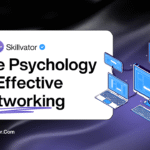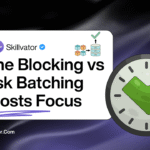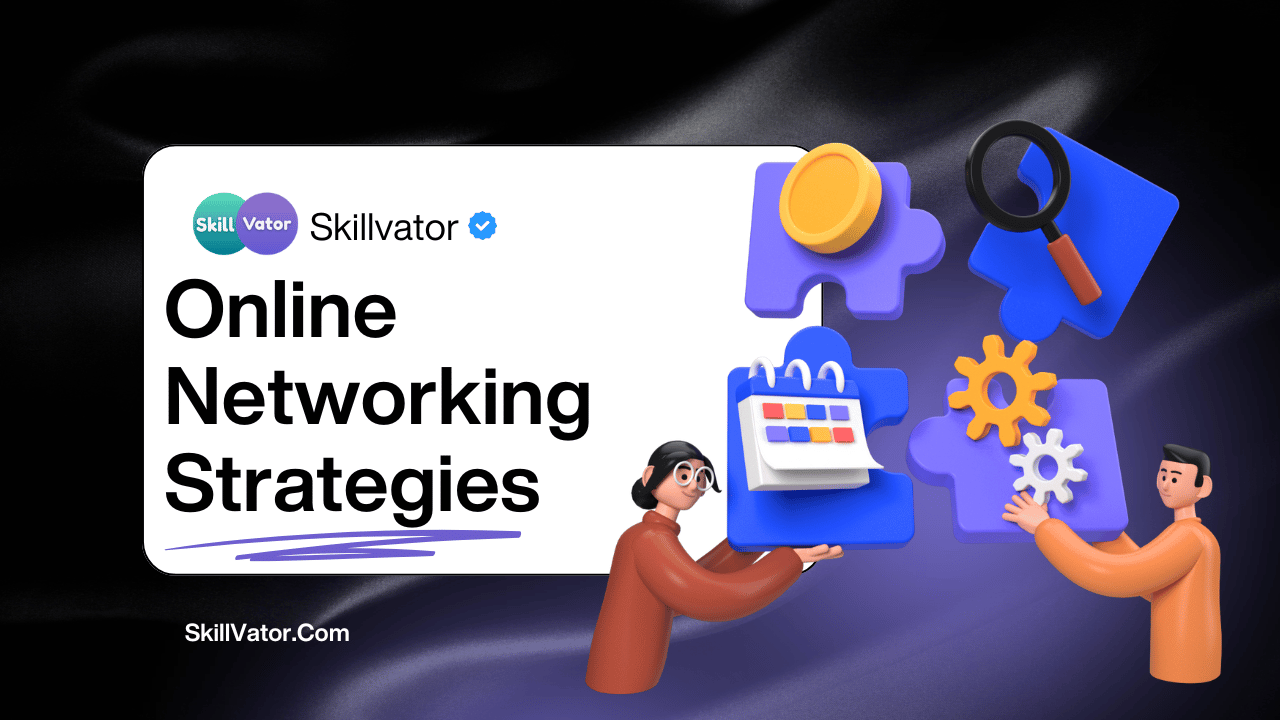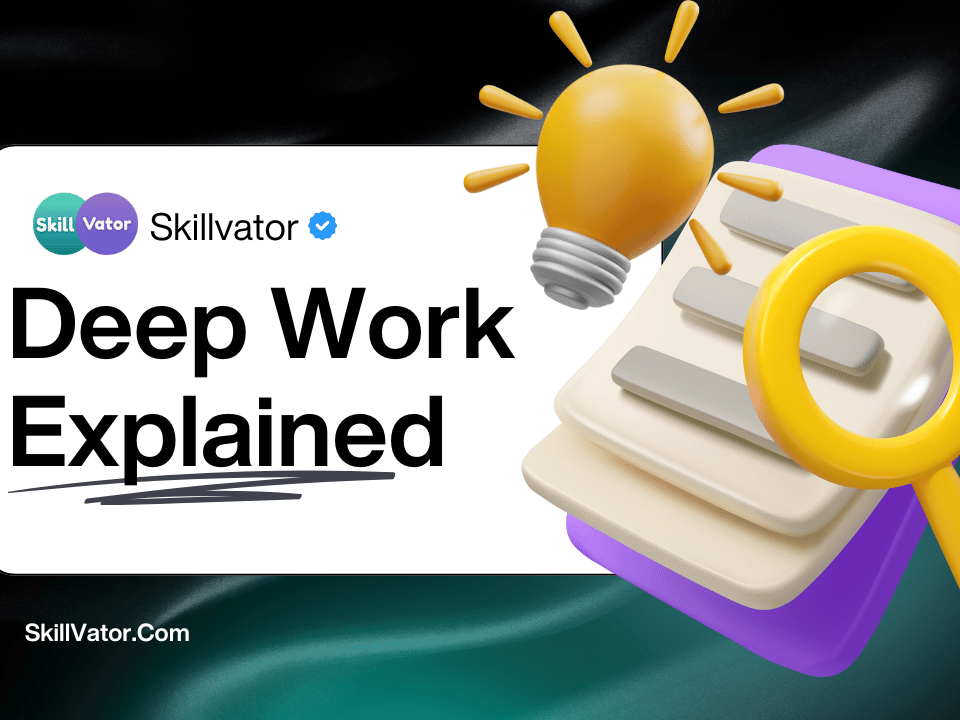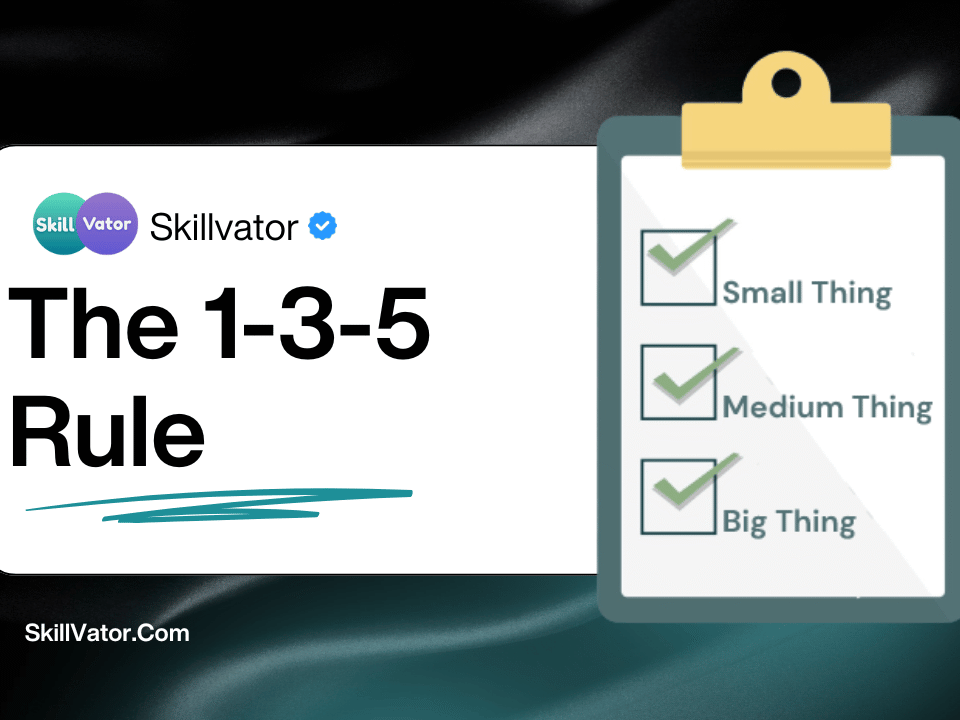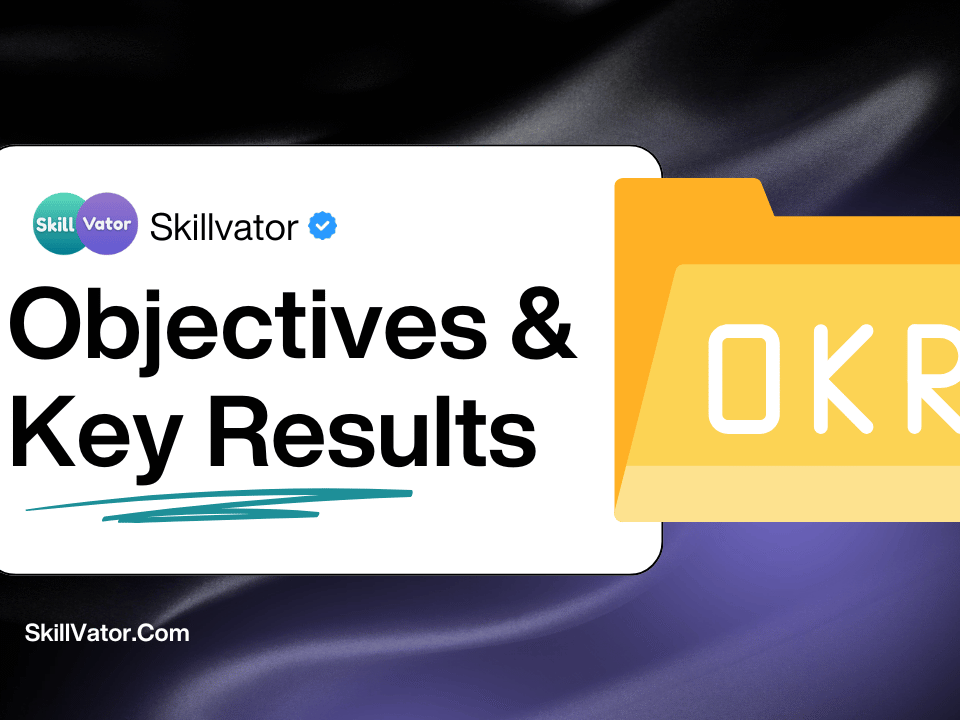Networking used to mean shaking hands at events, exchanging business cards, or sitting through long industry lunches. Fast forward to today — and especially into 2025 and beyond — networking has shifted almost entirely online. LinkedIn, Slack groups, Discord servers, even AI-driven platforms are now the arenas where opportunities are born.
But here’s the key insight: online networking is not just about being visible — it’s about being valuable.
In a digital-first world, where people are constantly bombarded with content and connection requests, the winners are those who can stand out by building authentic, meaningful, and strategic relationships.
This article is your comprehensive guide to online networking strategies in 2025 (and beyond). We’ll cover the platforms, the psychology, the AI tools, and the habits that will help you create a network that opens doors to jobs, collaborations, and growth opportunities.
Let’s dive in Stay with Skillvator
Why Online Networking Matters More Than Ever in 2025
The rules of professional growth have changed. Remote work, global teams, AI-driven hiring, and digital-first businesses mean that:
-
Your online reputation often precedes you. Employers, clients, and collaborators check LinkedIn or other platforms before reaching out.
-
Geography is no longer a barrier. You can network with someone in Tokyo while sipping coffee in Paris.
-
Opportunities flow through online visibility. Whether it’s LinkedIn posts, niche Slack groups, or even X (Twitter) discussions, online presence = professional relevance.
👉 In short: your network is no longer local — it’s global.
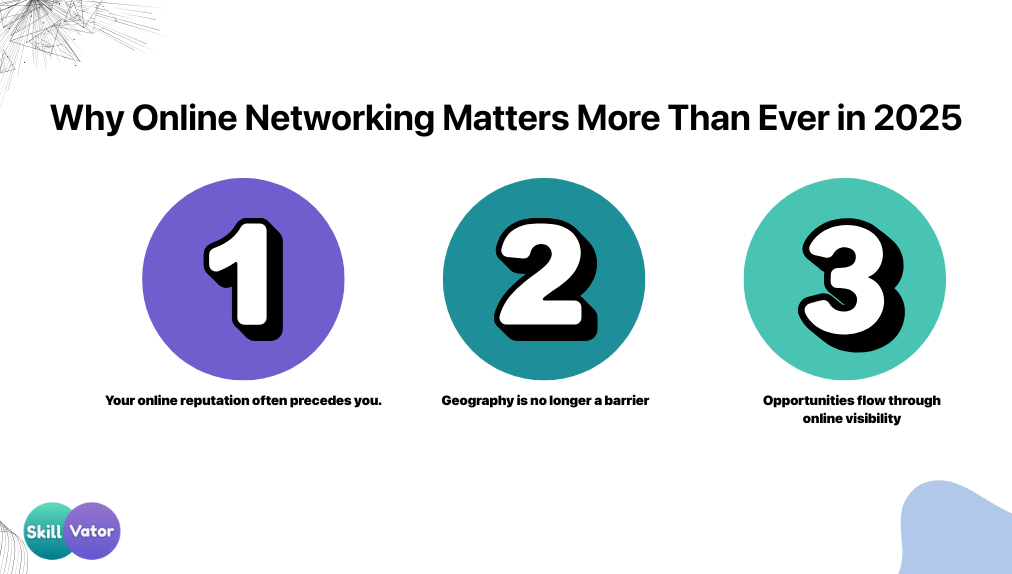
Online Networking Strategies
The Foundations of Effective Online Networking Strategies
Before diving into strategies, let’s anchor this in principles:
-
Value First, Ask Later
Don’t lead with “Can you help me?” Instead, contribute insights, share resources, and add value. Networking is about planting seeds of trust. -
Consistency Beats Intensity
Networking is not a one-off “campaign.” It’s about steady visibility — posting weekly, commenting daily, and showing up regularly. -
Authenticity Wins Over Performance
People can sense when you’re faking it. Share your real journey — lessons learned, failures, and wins. That’s what creates connection.
1. Optimize Your LinkedIn Profile for 2025
LinkedIn remains the king of professional networking — but the way you use it in 2025 has evolved.
a. Your Headline = Your Value Proposition
Don’t just put your job title. Instead, frame your headline around the value you bring.
-
❌ “Marketing Manager”
-
✅ “Helping SaaS Startups Scale from 0 → 1M ARR | Growth Marketing & Demand Gen”
Your headline should answer: Why should someone connect with me?
b. Post Weekly Insights, Results, and Lessons Learned
Consistency builds trust and visibility. Post:
-
A lesson from a recent project
-
A story about a client win
-
An insight from a book, podcast, or industry event
Pro Tip: Don’t just share — interpret. Add your perspective to make it original.
c. Engage With Others’ Posts
Networking is two-way. Spend as much time commenting thoughtfully on others’ content as you do posting your own.
Good comments add perspective, ask questions, or expand the discussion. They signal expertise without self-promotion.
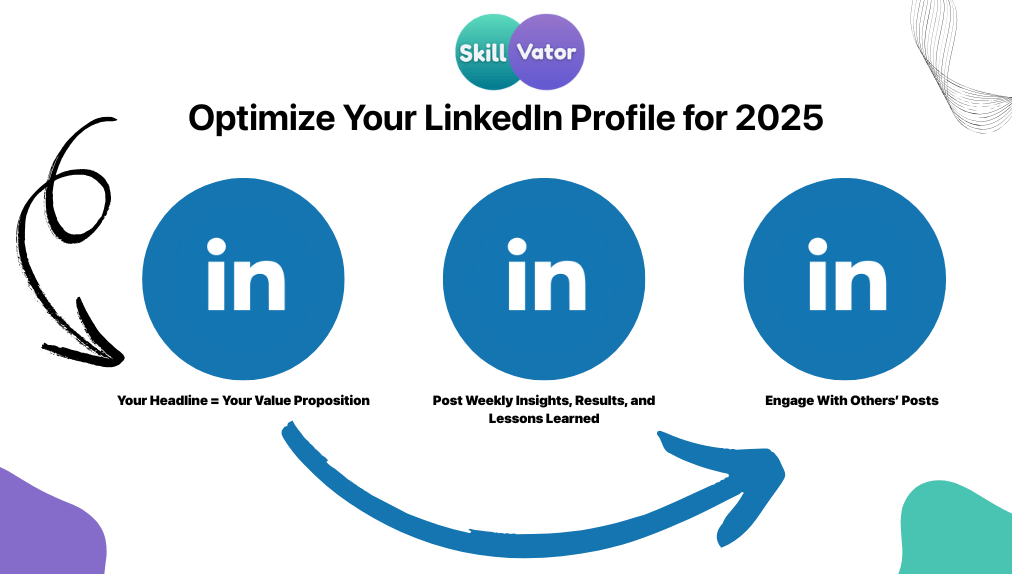
Online Networking Strategies
2. Leverage AI Networking Tools
AI has become a secret weapon for smart networkers. Instead of sending generic “Let’s connect” messages, you can now use AI to personalize, scale, and track networking.
a. Tools to Explore
-
Crystal Knows → Helps you understand someone’s personality type and adapt your communication style.
-
Zopto → Automates LinkedIn outreach campaigns with personalization.
-
LinkedIn Sales Navigator + AI tools → Filters and finds high-value connections based on roles, industries, and behaviors.
b. How AI Helps Networking
-
Suggests ideal connections → Based on your industry and goals.
-
Drafts outreach messages → With personalization so you don’t sound robotic.
-
Tracks follow-ups → Ensures no opportunity slips through the cracks.
👉 Key Tip: Don’t let AI replace your humanity. Use AI for structure, but add your voice for sincerity.
3. Join Niche Online Communities
In 2025, the most powerful networking isn’t happening on public feeds — it’s happening in niche communities.
a. Where to Look
-
Slack groups → e.g., Product Marketing Alliance, Indie Hackers, or Women in Tech.
-
Discord servers → Tech, startups, gaming, creative industries.
-
Industry-specific forums → Subreddits, professional associations, mastermind groups.
b. How to Participate
-
Engage in discussions instead of self-promoting.
-
Answer questions → Become a go-to expert.
-
Offer resources → Share templates, books, or tools.
👉 When you consistently show up with value, people naturally see you as an authority in that space.
4. Build Your Digital Reputation
In a crowded digital world, reputation = currency.
Here’s how to build it:
-
Create content that teaches → Articles, short posts, tutorials.
-
Collaborate with others → Co-host webinars, guest posts, podcast interviews.
-
Be visible outside of LinkedIn → Share your voice on Medium, Substack, or niche communities.
💡 Think of your online presence as a living portfolio — it shows what you know, how you think, and what you contribute.
5. The Psychology Behind Online Networking
Networking is still human-to-human. Let’s look at the psychology that drives online relationship building:
-
Reciprocity → Give before asking. Share an insight, resource, or intro.
-
Priming → Repeatedly share around one topic so people associate you with expertise in that field.
-
The Mere Exposure Effect → The more people see you, the more they like and trust you.
-
Active Listening (online version) → Reply thoughtfully to comments and DMs, showing you value their input.
6. Combine Weak Ties + Strong Ties
As we saw in social psychology research, weak ties (casual connections) often bring the biggest opportunities.
-
Strong ties = your close network → mentors, colleagues.
-
Weak ties = acquaintances, second-degree LinkedIn connections, group members.
👉 Strategy: Don’t just nurture close connections — also cultivate weak ties. Comment on a stranger’s post, DM someone from a Slack group, re-engage old contacts.
7. Create Networking Habits
Networking works best when it’s a habit, not a hustle.
Here’s a practical weekly system:
-
5 comments → Thoughtful engagement on others’ posts.
-
3 messages → Reach out to someone new or re-engage an old connection.
-
1 post → Share an insight, result, or story.
👉 In 3 months, this habit compounds into dozens of conversations and opportunities.
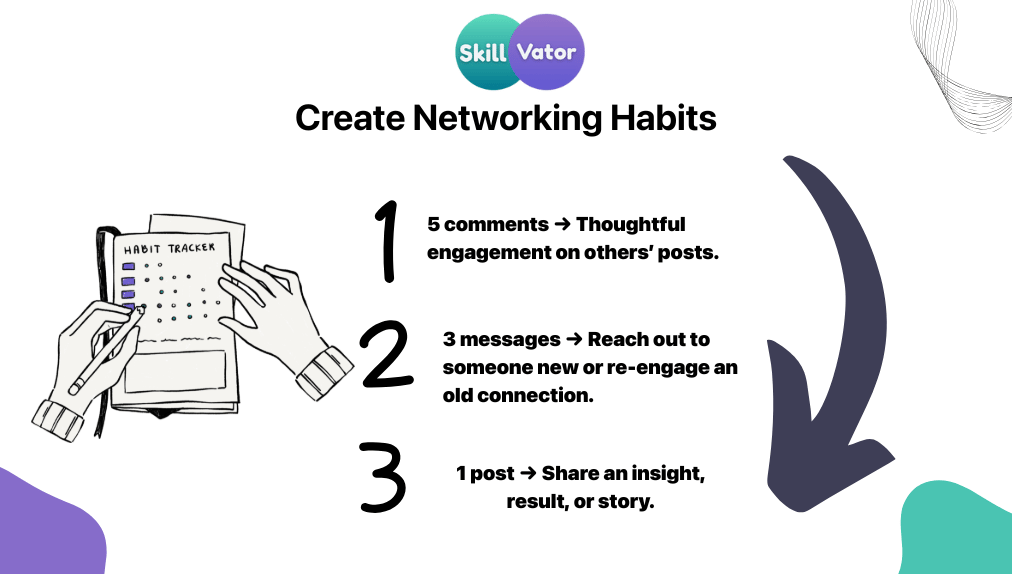
Online Networking Strategies
8. Avoid Common Online Networking Mistakes
-
Being transactional → “Can you refer me?” without building trust.
-
Over-automation → Sounding robotic with AI messages.
-
Ghosting → Ignoring follow-ups.
-
Only posting, never engaging → Networking is not a monologue.
People Also Ask (FAQs)
1. What’s the best way to network online in 2025?
Focus on value-driven engagement: optimize LinkedIn, join niche communities, and use AI tools strategically.
2. Can AI replace human networking?
No — AI can assist with finding and organizing contacts, but trust and authenticity must come from you.
3. How often should I post on LinkedIn?
At least once a week, but daily engagement (commenting and messaging) is even more important.
4. Do weak ties really help online?
Yes — often casual online connections (a person you commented with once) can introduce you to career-changing opportunities.
5. What’s better: LinkedIn or niche groups?
Both. LinkedIn builds broad visibility, while niche communities create deep authority.
Conclusion
Online Networking Strategies in 2025 & beyond are about combining human psychology with digital platforms. Optimizing your LinkedIn, leveraging AI tools, joining niche communities, and showing up consistently with value will set you apart in a crowded space.
The future of networking isn’t about numbers — it’s about authenticity, trust, and meaningful digital connections.
As I always remind my readers at Skillvator:
“In a noisy digital world, your best networking strategy isn’t being louder — it’s being more valuable.” – Raha Heydari, Founder of Skillvator

